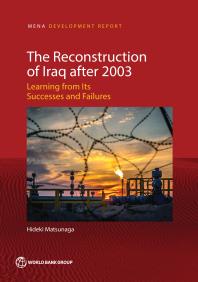(Ebook) The Reconstruction of Iraq After 2003 : Learning from Its Successes and Failures by Hideki Matsunaga ISBN 9781464813917, 1464813914
Beginning in 2003, diverse and significant actors, both domestic and international, engagedin reconstruction activities in Iraq. The total budget committed to Iraq's reconstruction wasunprecedented among postconflict operations mobilized by the international community. Despite thevast sums of money spent, and the implementation of its many projects and programs, the donors andthe Iraqi people view the reconstruction efforts in Iraq in a negative light.The Reconstruction of Iraq after 2003: Learning from Its Successes and Failures focuses on the periodbetween 2003 and 2014--that is, after the United States+"led invasion and overthrow of the SaddamHussein regime, and before the sudden rise of the Islamic State of Iraq and the Levant (ISIL), alsoknown as Daesh. This book assesses several dimensions of Iraq's reconstruction. First, it considers theresponse of key international actors, such as the United Nations, the World Bank, the United States,and other bilateral donors--specifically, the European Union, Japan, and the United Kingdom--as wellas nongovernmental organizations. Second, it analyzes the process and results of the reconstructionof key sectors (electricity, oil, education, and health), and the interventions geared to institutionbuilding and governance reform.Pursuing effective reconstruction within the context of conflict and fragility is a formidablechallenge because of the uncertain, fluid, and complex environment. Based on the experience in Iraq,how can the international community support the effectiveness and durability of reconstruction?This book identifies lessons in seven areas and offers four recommendations for international anddomestic actors and citizens engaged in reconstruction activities.The Reconstruction of Iraq after 2003 is important reading for development practitionersand policy makers who are or will be engaged in reconstruction efforts in fragile and conflict-affectedenvironments.
*Free conversion of into popular formats such as PDF, DOCX, DOC, AZW, EPUB, and MOBI after payment.


